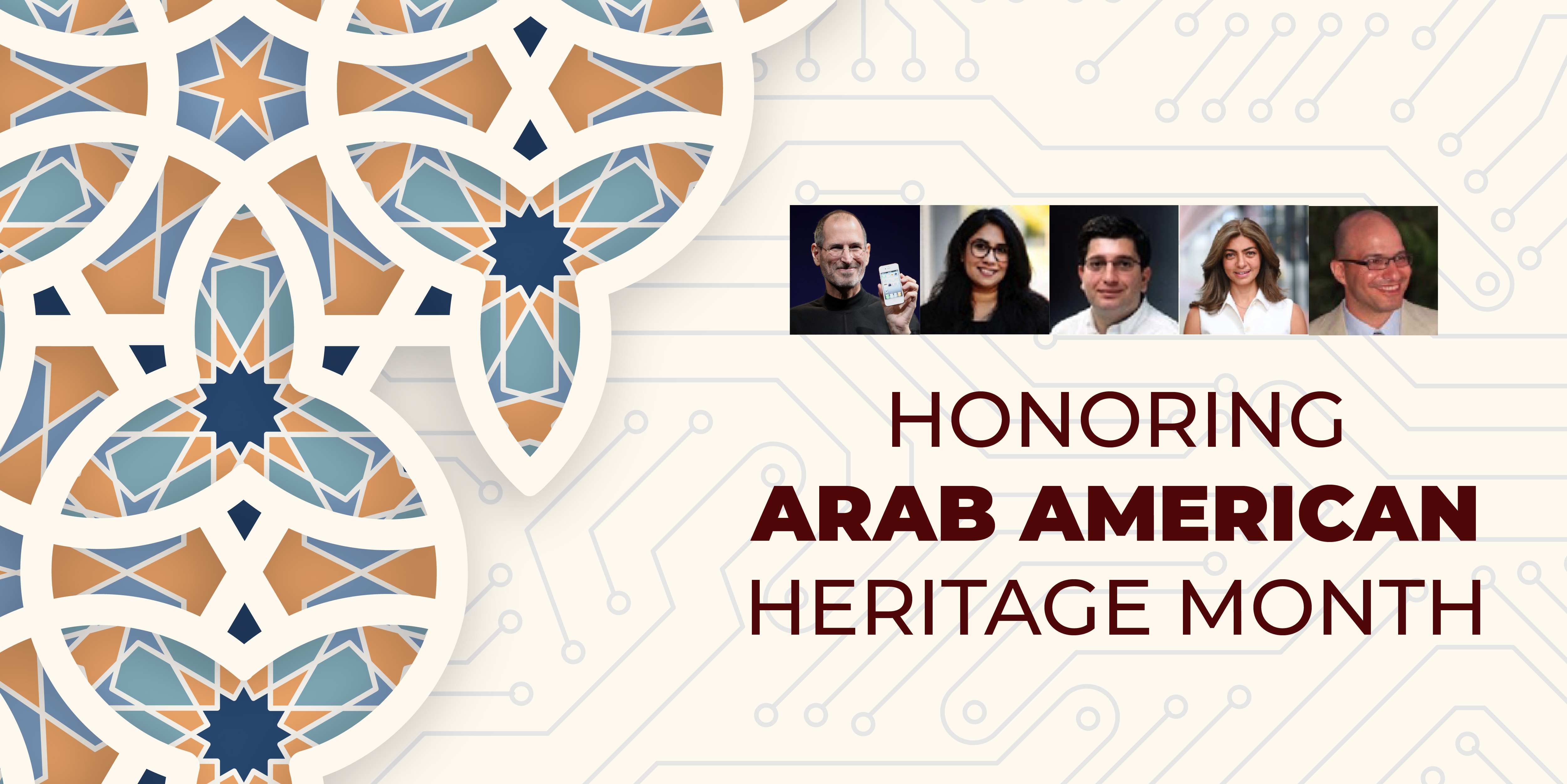General
Arab Americans and the Evolution of Educational Technology


 One of the most influential innovators of the digital age was Steve Jobs, the son of a Syrian immigrant and co-founder of Apple. Jobs transformed the world of technology through his vision for simple, elegant, user-friendly design. The tools he pioneered—from personal computers to mobile devices—have unleashed a wave of innovation that continues to transform modern learning, empowering students and educators alike.
One of the most influential innovators of the digital age was Steve Jobs, the son of a Syrian immigrant and co-founder of Apple. Jobs transformed the world of technology through his vision for simple, elegant, user-friendly design. The tools he pioneered—from personal computers to mobile devices—have unleashed a wave of innovation that continues to transform modern learning, empowering students and educators alike. Dr. Rana el Kaliouby is transforming the intersection of technology and social-emotional learning through her work in emotion AI. Her research into how technology can recognize and respond to student emotions supports the development of tools that improve engagement, adaptability and inclusion—key priorities in modern digital classrooms.
Dr. Rana el Kaliouby is transforming the intersection of technology and social-emotional learning through her work in emotion AI. Her research into how technology can recognize and respond to student emotions supports the development of tools that improve engagement, adaptability and inclusion—key priorities in modern digital classrooms. Dr. Ali Jadbabaie, a leading researcher in network science and professor at MIT, has focused much of his work on how AI and intelligent systems can enhance collaborative learning. His research explores how algorithms can match students with the right peers, learning materials and activities to support personalized, group-based instruction.
Dr. Ali Jadbabaie, a leading researcher in network science and professor at MIT, has focused much of his work on how AI and intelligent systems can enhance collaborative learning. His research explores how algorithms can match students with the right peers, learning materials and activities to support personalized, group-based instruction. Hadi Partovi, co-founder of Code.org, has redefined digital literacy by making computer science education accessible to millions of students worldwide. His commitment to equity in tech education has helped school districts integrate computer science into core curricula, especially in underserved communities.
Hadi Partovi, co-founder of Code.org, has redefined digital literacy by making computer science education accessible to millions of students worldwide. His commitment to equity in tech education has helped school districts integrate computer science into core curricula, especially in underserved communities. Laila Shabir, founder of Girls Make Games, is expanding access to game design education for girls and underrepresented youth. Through camps and workshops, her initiative teaches coding, storytelling and creative problem-solving—skills that open doors to STEM careers. Her work supports a more inclusive future for educational technology by empowering the next generation of creators.
Laila Shabir, founder of Girls Make Games, is expanding access to game design education for girls and underrepresented youth. Through camps and workshops, her initiative teaches coding, storytelling and creative problem-solving—skills that open doors to STEM careers. Her work supports a more inclusive future for educational technology by empowering the next generation of creators.